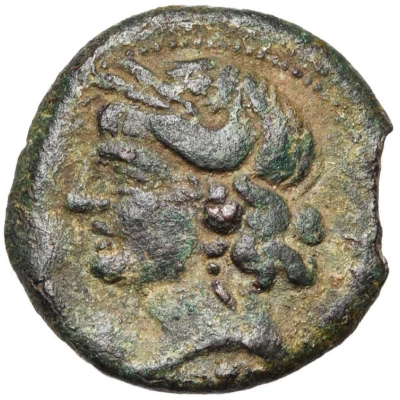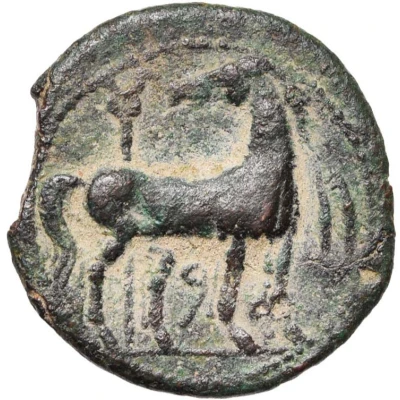


© Jean Elsen & ses Fils s.a.
Æ17 221 BC - 210 BC
| Bronze | 6.71 g | 19 mm |
| Issuer | Carthage (Zeugitana) |
|---|---|
| Type | Standard circulation coin |
| Years | 221 BC - 210 BC |
| Currency | Shekel |
| Composition | Bronze |
| Weight | 6.71 g |
| Diameter | 19 mm |
| Thickness | 2 mm |
| Shape | Round (irregular) |
| Technique | Hammered |
| Orientation | Variable alignment ↺ |
| Demonetized | Yes |
| Updated | 2024-10-09 |
| Numista | N#195383 |
|---|---|
| Rarity index | 89% |
Reverse
Horse right, with its head turned to left. Palm tree behind. Punic legend below.
Interesting fact
The Æ17 coin from Carthage (Zeugitana) was used as a form of currency during a time of great economic and political change in the ancient Mediterranean world. The coin's design features a stylized image of a horse and rider on one side, and a Phoenician inscription on the other. Despite being made of bronze, a relatively inexpensive material, the coin was valued for its durability and portability, making it a popular choice for trade and commerce.